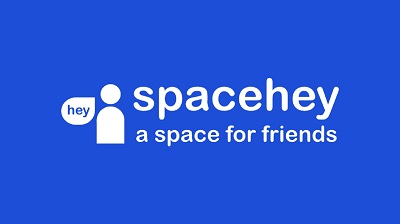The South Bend Common Council is debating a proposed ordinance that would cover social media policies for its members. The ordinance could come up for a vote as early as December 8.
The ordinance would prohibit the posting of “obscene” or “offensive” images or videos on social media accounts. Offenders who violate the ordinance would be subject to a council reprimand, removal of city-owned technology privileges, or a ban from posting on the Council’s Facebook account.
The draft version covers both “official and the non-official personal use of any and all city-owned technologies and privately-owned technologies, usage of Facebook, social media and social networking services and tools by any person elected to serve as a member of the South Bend Common Council.”
It would also standardize the Common Council’s Facebook presence with common policies across accounts.
The ordinance is a direct response to Councilman Henry Davis Jr.’s post of an image that depicted bestiality on his personal Facebook account. The council considered possible action against Davis Jr., but determined that he had not broken any council rules or laws.
Councilman Tim Scott (District 1) drafted the proposal. So far, Councilmembers Gavin Ferlic, Derek Dieter and Karen Lewis have signed on as co-sponsors. A five vote majority is needed for the ordinance to pass out of the full Common Council.
Not all members of the council are on board.
Council President Oliver Davis (District 6) has expressed concerns about the constitutionality of the ordinance. Davis submitted the ordinance to the ACLU for review.
“The proposed ordinance, at Sec. 2-9.1(d)(3) prohibits a Council Member from posting, on his or her private social media, any image considered ‘offensive.’ This is a vague and ambiguous term and the government cannot, consistent with the First Amendment, prohibit ‘offensive’ speech, even on its own technology, let alone on privately-owned technology,” writes ACLU attorney Kenneth Falk in a letter to Cristal Brisco, the city’s Corporation Counsel.
The ACLU lawyer argues that the ordinance is written with vague language. They argue that some restrictions may be made for the city’s own technology and social media site, but such actions cannot be made for a privately held account since they would unreasonably restrict the councilmember’s free speech rights.
“In the event that the ordinance is enacted my office will consider bringing litigation to enjoin the ordinance’s application,” Falk warns.
The ordinance’s sponsors defended their proposal in a statement on Tuesday.
“In lieu of Social Media issues in the past and with ever changing technology and communications methods, this bill is an ethical and professional guidelines to compliment the City Code,” the statement reads.
“It is only in bill form and is open to suggestions and changes by the IT Committee members, the Rules Committee members and all the members of the Common Council. Nothing has been voted upon at this time.”
The statement calls it “disheartening” that Councilman Oliver Davis “took the first steps of choosing a lawyer to represent him to voice concerns” about the ordinance.
“The goal is never to limit freedom of speech, when we refer to the private pages of Common Council members, it would be their individual pages set up in their title as Common Council members. Individual members of the Common Council can and many do, have private individual pages where they are more than able to voice any opinion they want,” the statement says.
“What we are trying to provide is proper decorum and ethical guidelines to the business and communications in our official capacity on the Common Council. Our goal is to craft the best possible policy in which the citizens of South Bend have confident in communications of the Common Council,” the sponsors argue.
Council President Davis disagrees. He contends that he was not made aware of the ordinance until it was first put on the Council agenda, which he says is rare.
Davis says that his concerns arose after attending an ACLU forum at the St. Joseph County Library in August. Davis was the only member of the Common Council in attendance.
Davis says that his concerns were only brought to the ACLU after speaking in consultation with the council’s attorney, who believes that the proposed ordinance would pass constitutional muster. He says that he wanted a second opinion in order to prevent a potential lawsuit, noting that the consultation with the ACLU did not cost the city any money.
“I don’t want to get caught up in a political game. I want to follow the law,” Davis says.
The city of South Bend has had several First Amendment lawsuits in recent years, including a successful lawsuit to prevent the city from selling city-owned property that it acquired for $1.2 million to St. Joseph High School — a religious institution — for $1. The ACLU also sued the city in June over a busking ordinance.
“I was embarrassed with that busking bill. I voted for it. I’m going to do my homework next time,” Davis says, adding that “we have enough lawsuits in the city of South Bend going on already.”
Both Council President Oliver Davis and Councilwoman Valerie Schey have unsuccessfully requested that the proposal get pushed back to January to give the council more time to study the issue.
The proposed social media ordinance will be heard in committee on Monday, December 8, where it could come up for a vote. The sponsors said in their statement that they will allow an “open discussion with input from all” to make sure that the “final bill represents our best work.”
Below, we have the full ACLU letter to the city of South Bend:
South Bend Voice will continue to follow this story as it develops.
————










